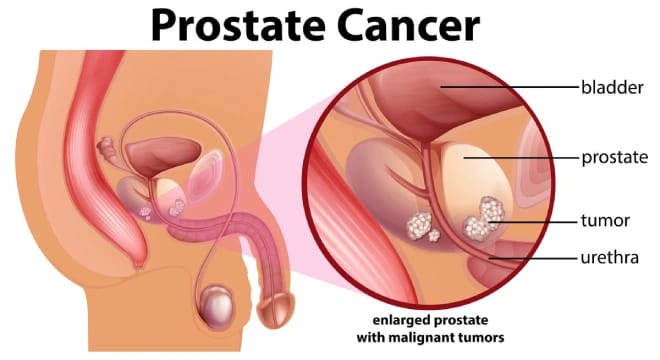Biden’s Stage 4 Diagnosis Sparks Public Awareness Around Prostate Cancer and Its Symptoms
Washington, D.C. – May 19, 2025— Former U.S. President Joseph R. Biden Jr. has been diagnosed with an aggressive form of prostate cancer, according to a statement released by his personal office. The cancer has metastasized to his bones, making it a Stage 4 diagnosis.
The announcement, made Sunday, comes after Biden, 82, reported experiencing urinary symptoms that prompted a medical evaluation. Doctors discovered a “small nodule” on his prostate, and further tests confirmed a Gleason score of 9, one of the highest and most aggressive ratings used to classify prostate cancer severity.
“While this represents a more aggressive form of the disease, the cancer appears to be hormone-sensitive which allows for effective management,” the statement read.
Joe Biden Medical Experts Weigh In
Dr. Judd Moul, a leading prostate cancer expert at Duke University, commented on the diagnosis, emphasizing that while Stage 4 prostate cancer that has spread to the bones is incurable, it is still manageable. “Survival rates have almost tripled in the last decade,” he said.
Treatment typically begins by blocking testosterone production, which feeds prostate cancer cells. In the past, this was done surgically, but today, patients receive hormone therapy through injections or oral medications. Additional drugs may be used to prevent any residual testosterone from fueling the disease.
“I see men Mr. Biden’s age with similar diagnoses on a regular basis,” Dr. Moul noted, adding that patients can live five to ten years or more with proper treatment.
Joe Biden Get Reactions from Political Figures
Despite the contentious nature of American politics, news of Biden’s diagnosis prompted an outpouring of bipartisan support.
Former President Donald Trump issued a public statement: “Melania and I are saddened to hear about Joe Biden’s recent medical diagnosis. We extend our warmest and best wishes to Jill and the family, and we wish Joe a fast and successful recovery.”
Former Vice President Kamala Harris also expressed support. “Joe is a fighter — and I know he will face this challenge with the same strength, resilience, and optimism that have always defined his life and leadership,” she said.
Biden’s Post-Presidency and Health History
Since leaving office in January, Biden has maintained a relatively low profile, spending much of his time in Delaware. The former president stepped down from his re-election campaign last year, citing increasing scrutiny over his age and health.
Biden has faced significant medical challenges in the past. In 1988, he survived two life-threatening brain aneurysms. His son, Beau Biden, passed away from glioblastoma in 2015.
Most recently, in early 2024, his physician declared him “fit to serve” following a routine checkup at Walter Reed National Military Medical Center. However, concerns about Biden’s health resurfaced after a June 2024 presidential debate, during which he appeared disoriented. He ultimately dropped out of the race and endorsed Kamala Harris, who later lost to Trump.
What is Prostate Cancer?
Prostate cancer originates in the prostate gland, a small walnut-shaped organ in males that produces seminal fluid. It is one of the most common types of cancer in men, particularly those over the age of 50.

Prostate cancer can vary widely in aggressiveness. Some forms grow very slowly and may require minimal or no treatment, while others can be highly aggressive and spread quickly.
How Do You Know If You Might Have Prostate Cancer?
Early prostate cancer often shows no symptoms. However, as it progresses, signs may include:
1.Frequent urination
2.Difficulty starting or stopping urination
3.Weak or interrupted flow of urine
4.Painful or burning sensation during urination or ejaculation
5.Blood in urine or semen
6.Persistent pain in the back, hips, or pelvis
Doctors use prostate-specific antigen (PSA) tests and digital rectal exams (DRE) to screen for early signs. A biopsy confirms the diagnosis and helps assign a Gleason score to gauge how aggressive the cancer is.
Can You Recover from Prostate Cancer?
Recovery and prognosis depend largely on the cancer’s stage and Gleason score. Localized prostate cancer has a nearly 100% 5-year survival rate. However, once it spreads beyond the prostate, particularly to bones, the disease becomes chronic rather than curable.
Modern treatment options, including hormone therapy, chemotherapy, immunotherapy, and radiation, have extended survival and improved quality of life for many patients.
Final Thoughts
While President Biden’s diagnosis is serious, it also serves as a reminder of the importance of regular health check-ups, early detection, and the advances in cancer treatment. As he and his family evaluate treatment options, the nation watches with hope and support.
Also Read :Why is Chris Brown in Jail 2025